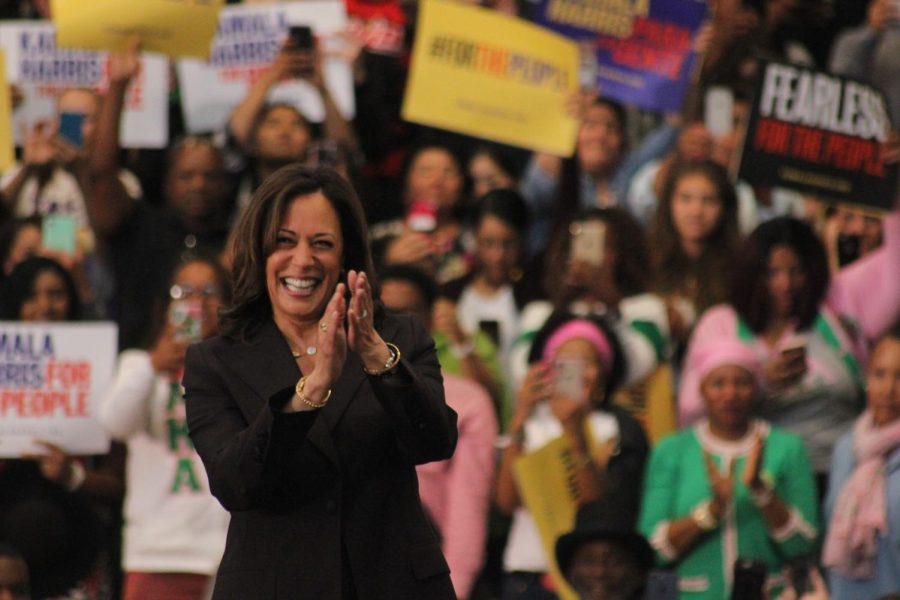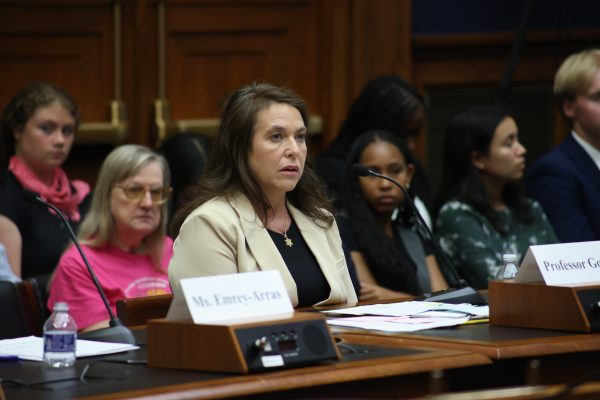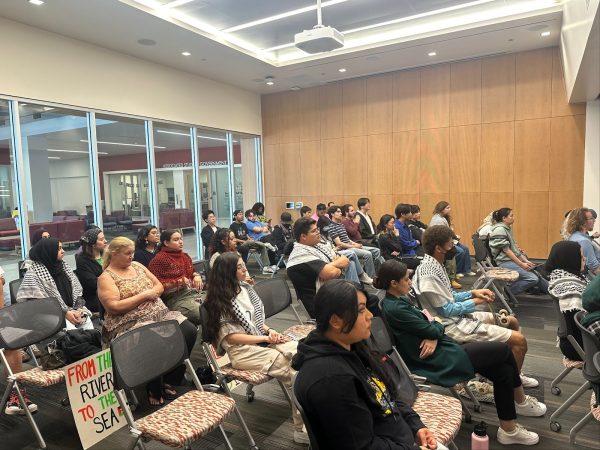Kamala Harris Makes History
Joe Biden selects Kamala Harris, the first woman of color nominee, for vice president pick
Kamala Harris smiles and claps as everyone in the crowd cheers when she walks on stage at her event, Kamala Harris for the People on May 19, 2019. Photo credit: Lauren Berny/ SAC.Media.
“My little girl who was born in 2012 has only known a Democratic Party that elected a Black president, nominated the first woman on a major ticket, and has now tapped a Black woman for Vice President. Her world will be bigger than mine,” writer Corey Richardson tweeted.
Although not widely known to the country before her presidential run, Harris had a standout moment during the second night of the Democratic debate in June 2019 when she challenged Biden’s record on civil rights issues.
“There was a little girl in California who was part of the second class to integrate her public schools and she was bused to school every day. And that little girl was me,” Harris said as she called out Biden’s previous opposition to busing.
Harris was born in Oakland, California to an immigrant mother from India and an immigrant father from Jamaica who met during the civil rights marches of the 1960s. They divorced when Harris was five, and her mother raised her and her younger sister as a single parent.
Harris completed her undergraduate degree from Howard University, a historically Black university, and earned her law degree from the University of California, Hastings. She has since built her career as a district attorney, attorney general and senator.
In her acceptance speech on the third night at the virtual Democratic National Convention, she began by acknowledging the women who fought for voting rights 100 years ago, and the Black women who continued fighting the racial discrimination that hindered their suffrage long after.
Harris also emphasized her mother’s influence on her principles and said, “She raised us to be proud, strong Black women. And she raised us to know and be proud of our Indian heritage.”
There has never been a mixed-race woman on a major party ticket. Harris’s nomination is significant in embodying the unique mosaic of cultures and ethnicities that is the United States.
Her own upbringing set her in a unique position to bridge distinct cultures within a white society and assess situations from multiple perspectives. Her background speaks to a population of Americans that is becoming increasingly diverse, a characteristic which political offices have historically underrepresented.
She has described herself as a “progressive prosecutor” based on her roles in California and has received praise and backlash from liberals and conservatives for her previous record.
Whether her and Biden’s stances will be influential enough in the 2020 election against the Trump administration’s conservative record is to be determined.
While the country has more room for improvement in all ranks of political offices to be more representative of their constituents, Harris’s nomination is certainly a statement about the future of elected officials. Perhaps it will be the norm to see women and people of color represented in one of the highest offices in the nation.













